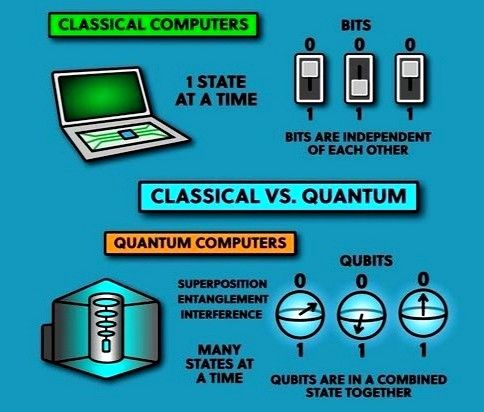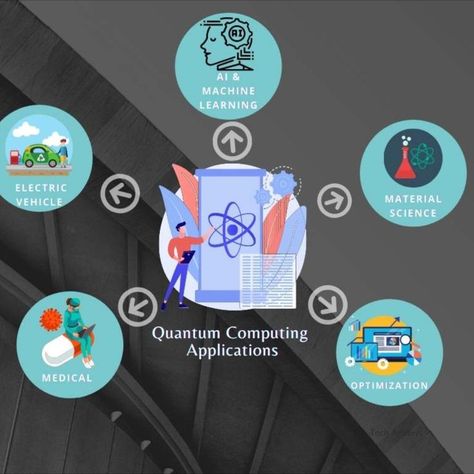Quantum computing stands out as one of the most promising and revolutionary innovations in the constantly evolving technological landscape. It has the most innovative and robust mechanic systems that enables it to solve complex problems at an unprecedented speed, much faster than conventional computers.
Quantum computing is currently one of the most popular dissertation topics among students pursuing undergraduate, Degree, Masters and PhD. While it is a topic shrouded in complexities, writing about it can be a noteworthy contribution to your field of study.
The following article unravels the breakthroughs, applications and the future of Quantum computing. The information can give you a better head start for crafting a top notch essay or dissertation about quantum technologies.
What is Quantum Computing?
Quantum computing uses the fundamental principles of superposition and interference to perform calculations. Unlike classical computers that use bits to do calculations, quantum technologies use qubits. That enables them to do calculations and solve complex problems at much faster speeds than ordinary computers.
The key underlying principles of quantum technologies are superposition, entanglement, quantum gates and measurements.

Superposition creates qubits that can represent a combination of 0 and 1 simultaneously. That enables quantum computers to carryout multiple calculations in parallel, thereby boosting their processing power for specific tasks exponentially.
Entanglement or interference is whereby the state of one qubit is intrinsically correlated with the form of another even if they are in different physical locations. That characteristic enables qubits to be interlinked in ways that classical bits cannot, facilitating quantum computers’ robust information-processing power.
Quantum gates are quite similar to the conventional logic gates in the sense that they manipulate qubits to undertake specific tasks. They are critical in implementing quantum algorithms and performing computations.
The measurement of qubit collapses it from the superposition state to either a 0 or a 1. However, the outcome is based on a probability. Those principles pave way for quantum computers’ unique computational power. Harnessing superposition and entanglement enables quantum algorithms to efficiently solve certain problems that would take classical computers quite a lot of time.
Benefits of Quantum Computing
There are many benefits of quantum computing that give it a better hedge over classical computing. Here are the key benefits of quantum computation.
Exponential Speeds
The parallel information processing power of quantum computation enables it to solve complex problems at much greater speeds than classical computers. The computers can accomplish complex mathematical tasks such as searching unsorted databases and cryptography in a fraction of the time taken by classical computers.
Quantum Simulations
Quantum computing can simulate quantum systems, enhancing breakthroughs in fields like, drug discovery and material science. Such tasks are very challenging for classical computers.
Optimization of Problems
Quantum computing can efficiently tackle optimization problems such as generating the best solutions among countless options. That makes it an incredible tool for optimizing processes and resources in sectors like logistics, finance and supply chain management.
Machine Learning
Quantum technologies can significantly boost machine learning algorithms by processing and analyzing huge amounts of data. Quantum machine learning models such as quantum support vector machines and neural networks have proven valuable in various applications.
Applications of Quantum Computing
There applications of quantum computing are quite robust and they span across different fields. The following are some of the potential applications of quantum technologies.

Cryptography and Security
The potential impact of quantum computing in cryptography is one of its most intriguing elements. Its algorithm called, Shor’s algorithm, has the potential to factor large numbers quickly, thereby breaking the popular cryptographic concepts such as ECG and RSA. Studies are currently underway to develop quantum-safe crypto algorithms for the protection of sensitive data.
Material Science and Drug Discovery
Quantum computers can analyse molecular interactions and simulate complex chemical processes, thereby enhancing material design and drug discovery. Quantum technologies can accelerate the process of discovering new drugs and materials with specific characteristics.
Artificial Intelligence and Machine Learning
The combination of machine learning with quantum computing could unleash new breakthroughs in AI. The capabilities of Artificial Intelligence models could be significantly boosted by quantum algorithms for data analysis, pattern recognition and optimization.
Optimization in Logistics and Finance
The optimization capabilities of quantum computing can transform portfolio optimization and financial modelling. It can efficiently analyse huge amounts of financial information and optimize investment strategies for better returns with lower risks.
The Challenges of Quantum Computing
It is not just enough to know about the potential applications of quantum computing. Knowing about its challenges allow you to understand its current state and what to look out for in the future.
Qubit Stability and Decoherence
Qubits have a higher sensitivity to external influences. That leads to decoherence; a state where qubits lose their quantum state to become classical bits. Accurate quantum computation requires that there are ideal ways to maintain qubit stability and mitigate decoherence.
Hardware and Scaling Problems
Several companies still face significant challenges when it comes to developing large scale and practical quantum computers. The current implementations of hardware face limitations in qubit count, error rates and connectivity. Improvements in quantum hardware are necessary for creating powerful and scalable systems.
Competition in Research and Development
Quantum computing is a highly competitive frontier, with several leading tech companies and institutions competing for breakthroughs. Advancing quantum technologies require collaboration and research initiatives.
The Future of Quantum Computing
The future outlook of quantum computing is draped in excitement and uncertainty. While it has already achieved greater milestones, it still remains a challenge to find quantum computers that outshine classical computers in accomplishing general-purpose tasks. However, current research and development and growing investments are quickly pushing the boundaries.
Researchers promise significant progress in quantum hardware, algorithms and error correction techniques in the next decade. Those advancements could make quantum computing more accessible to diverse sectors and even the society at large. Addressing the ethical and security concerns of quantum computing would be crucial to it is implemented responsibly and beneficially.
In conclusion, quantum computing is a revolutionary technology that offers unrivaled computational power and the potential to transform various sectors. It holds the key to solving complex problems such as cryptography and drug discovery that remain intractable for classical computers.
At Exemplarydissertations, we are the dissertation writing experts that you can always rely on to deliver a top notch paper on complex topics such as quantum computing. Get in touch with us for professional assignment writing help.

